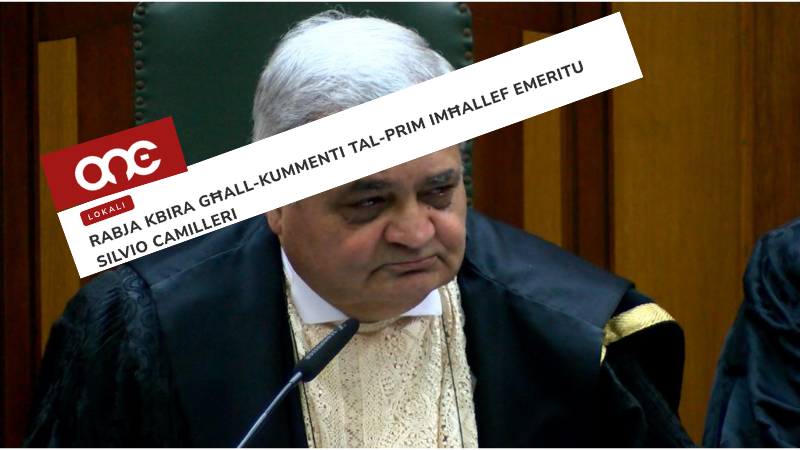The Opposition has called on the government to reopen the Malta Business Registry’s Register of Beneficial Owners for journalists and civil society, a day after the database was abruptly removed from the MBR’s website on Friday.
Labeling the government’s decision to close the UBO register as “manifestly disproportionate and hasty”, Nationalist Party shadow justice minister Karol Aquilina and shadow economy minister Ivan Bartolo acknowledged this week’s European Court of Justice ruling that information on the ultimate beneficiary owners of companies should not be made available to the public at large.
But they also referred to the EJC’s recognition and emphasis that such information should be accessible to those who have a legitimate interest – including journalists and civil society.
“The decision of the Malta Business Registry means that journalists and civil society will be deprived of an essential tool in the search for the truth and the disclosure of abuses, which are aimed at strengthening democracy and good governance,” they said in a statement on Saturday morning.
The shadow ministers said they now expect Economy Minister Silvio Schembri “to give a clear directive to the Malta Business Registry so that, as a government agency, to immediately give free, full and open access to journalists and civil society to the registry’s information”.
They also called on Justice Minister Jonathan Attard and Economy Minister Silvio Schembri to table a Bill in Parliament to reflect the EJC’s ruling that will recognise, at law, the right of journalists and civil society to access the MBR’s UBO registry.
The shadow ministers also recalled how in October 2020 information about companies struck off from the MBR’s registry of companies had been suddenly made inaccessible, “under the pretext of a need to clean up the register by removing companies that are no longer active”.
“This, too, came at the expense of journalists’, civil society’s and the general public’s right to information,” they said.
Following the ECJ ruling invalidating public access to UBO registers, EU states set about implementing the decision. Along with Malta, Luxembourg and the Netherlands removed access in what is being widely considered as a major setback in the fight for corporate transparency and against financial crime.
The ECJ’s judgment found that “the general public’s access to information on beneficial ownership constitutes a serious interference with the fundamental rights to respect for private life and to the protection of personal data,” according to a press release from the court.
Activists said the decision removed a fundamental tool in the fight against kleptocracy and the abuse of shell companies.
Transparency International’s Maíra Martini said it “takes us back years.
“Access to beneficial ownership data is vital to identifying – and stopping – corruption and dirty money. The more people who are able to access such information, the more opportunity to connect the dots,” she said.
Martini said the court had recognised that civil society and the media had a legitimate interest in accessing the information meaning “all is not lost”.
Roland Papp, senior policy officer at Transparency International, said the European Parliament should urgently “include precise provisions that reconcile public access with privacy and security concerns” in new money laundering rules.
In its 22 November ruling, the ECJ cites the legal context of EU directives that stipulate, “Public access to beneficial ownership information allows greater scrutiny of information by civil society, including by the press or civil society organisations, and contributes to preserving trust in the integrity of business transactions and of the financial system.
“It can contribute to combating the misuse of corporate and other legal entities and legal arrangements for the purposes of money laundering or terrorist financing, both by helping investigations and through reputational effects, given that anyone who could enter into transactions is aware of the identity of the beneficial owners.”
The ECJ also said in its ruling that, “To the extent that that recital states that the general public’s access to beneficial ownership information allows greater scrutiny of information by civil society, and that express reference is made in that regard to the press and to civil society organisations, it should be found that both the press and civil society organisations that are connected with the prevention and combating of money laundering and terrorist financing have a legitimate interest in accessing information on beneficial ownership.
The ECJ had been asked to rule on the issue following complaints from a number of individuals and companies who appealed to the Luxembourg registry for their names to be kept private. The ruling, which names two plaintiffs – WM, the beneficial owner of Luxembourg real estate company Yo and Sovim SA, which is also registered in the country.













